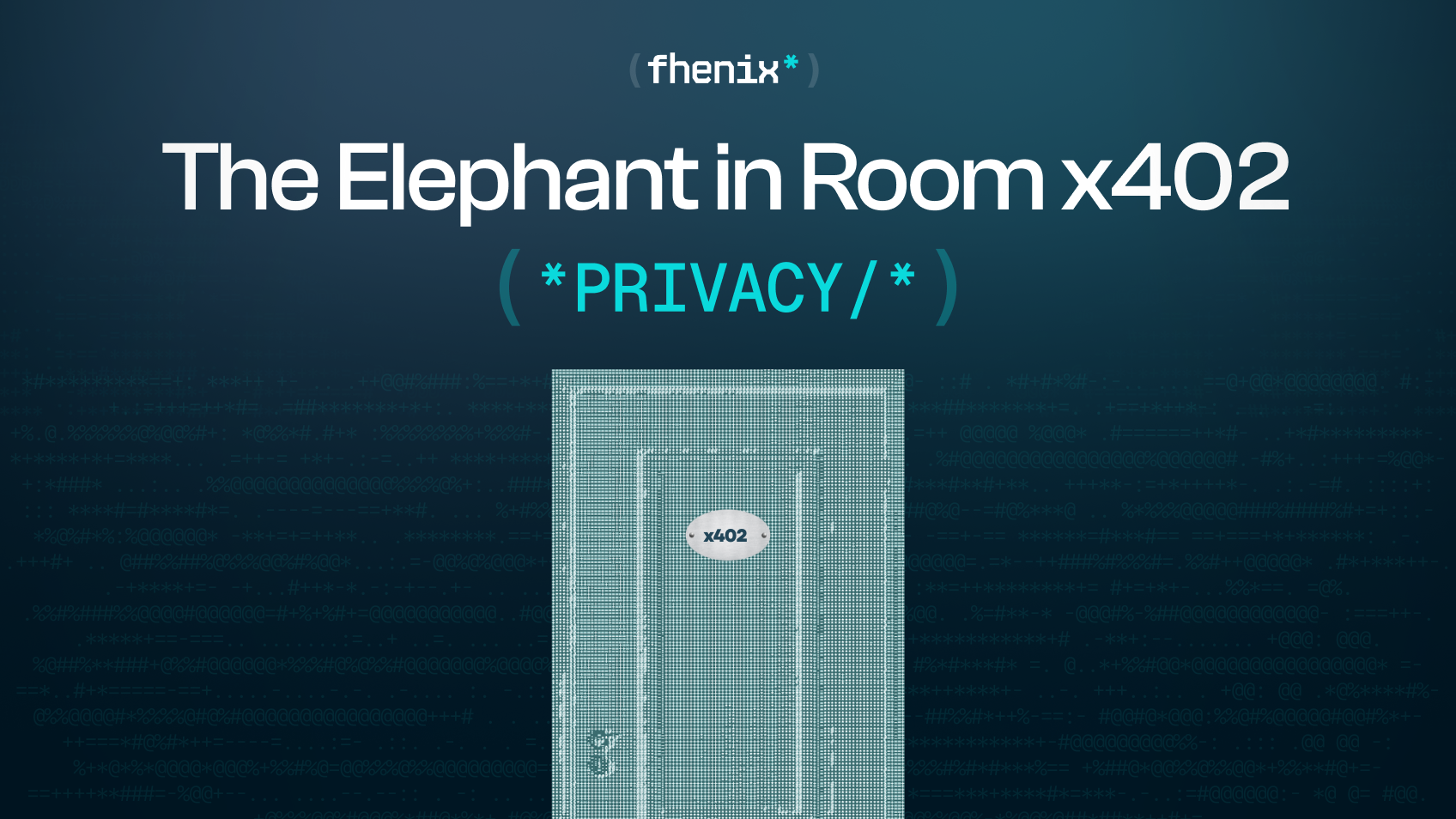Real talk: x402 is awesome, but we need to address the elephant in the room: privacy.
Everyone’s excited about x402 enabling native payments for AI agents. And they should be. It’s genuinely innovative. But there’s a critical gap between the vision and what we’re actually building.
Let’s breakdown the problem: x402 creates a fusion of Web2 metadata (IP addresses, timestamps, device fingerprints) and Web3 identity (wallet addresses, transaction history). Every micro-payment your agent makes leaves a permanent, correlatable trail. This isn’t theoretical.
Here’s what gets exposed:
- Which APIs your agent calls
- When it calls them
- How much it pays
- Which wallet it uses
- Behavioral patterns over time
The correlation attack is trivial: Match an on-chain timestamp with a server log timestamp.
Now you can link a wallet to an IP, scale this across thousands of agent transactions and reconstruct complete user behaviour graphs. No malicious actor needed. It happens by default.
Now imagine the agentic internet at scale: Millions of AI agents, each executing hundreds of transactions daily. Every API call, every data fetch, every compute request- all permanently indexed and linkable.
“Just use a new wallet for each transaction”- Sure, but then your agent can’t build reputation, maintain persistent identity, or access any services that require history. You’re forced to choose between privacy and utility. That’s a design flaw, not a feature tradeoff.
This is where Fully Homomorphic Encryption (FHE) becomes essential. FHE is a type of encryption that lets you perform computations on encrypted data without ever decrypting it. Think of it like a locked box where you can still do math on the numbers inside without opening it.
For x402, this means:
- Payments can be verified without revealing amounts
- Usage patterns can be analyzed without exposing individual behaviour
- Reputation can accumulate without doxxing identity
- Agents can transact without creating surveillance graphs
With FHE, you get programmable payments AND privacy by default.
Here’s why this matters for x402 specifically: The whole point of agent-driven payments is to make the internet more programmable and efficient. But if every transaction is transparent and linkable, you haven’t created freedom, you’ve just made surveillance more efficient.
The promise of crypto was always credible neutrality and sovereign identity. But x402 without privacy gives us transparent neutrality and surveilled identity. That’s not the future we signed up for.
The agentic internet is coming.
Standards like x402 and ERC-8004 are already defining it. AI agents will handle millions of payments, identity verifications, and coordination tasks.
The only question is: Do we architect privacy into these systems from day one? Or do we build them transparent and spend years trying to retrofit privacy later?
Because here’s the reality: You cannot bolt privacy onto a transparent system.
Privacy has to be foundational, or it doesn’t exist at all. Privacy needs to be by design.
FHE isn’t an optional add-on you include when users start complaining.
It’s a core requirement for x402 to deliver on its actual promise: making payments programmable, efficient, AND private.
Look, we’re bullish on x402. The technical innovation is real, and re-using the original 402: Payment Required HTTP code is cool. The use cases are compelling. Agent-driven payments will transform how the internet works. But let’s be honest about what we’re building: If x402 becomes the standard without privacy-preserving tech like FHE, we risk creating the most comprehensive behavioral tracking infrastructure ever deployed- one that’s permanent, correlatable, and increasingly difficult to escape.
We can do better than that.
x402 + FHE = the programmable, private web that agents (and humans) actually need.
TL;DR:
- x402 enables native payments for AI agents (and humans too!) — huge innovation!
- Without privacy tech, it maximizes surveillance with a permanent paper-trail
- FHE lets you compute on encrypted data without decrypting it
- Fhenix FHE makes x402 both programmable AND private
- Privacy must be foundational, not retrofitted
The agentic internet doesn’t just need trustware, It needs private trustware.
Let’s build it right from the start.
%20(16).svg)

.png)
.svg)
.svg)


.svg)
.svg)
%20(15).svg)